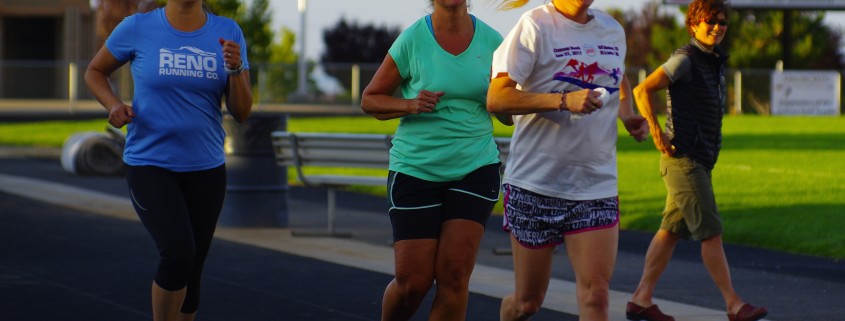You’ve Scratched the RTO Off Your Bucket List. Now What?
By Julie Young
As the official training partner for the Race 178, running series, we provide, among other things, a series of training articles. Below is an article to help runners better prepare for the upcoming Reno-Tahoe Odyssey. Enjoy the read…
When I was asked to write an article on what to do three days leading up to the Reno-Tahoe Odyssey (RTO), I bristled, thinking, “We’ve missed the point.” In my opinion, this what-should-I-do-three-days-out mentality sends the wrong message and robs us of opportunities. It’s the training to the starting line that presents golden opportunities for lifestyle changes of improved fitness, nutrition, hydration and sleep. These changes will improve your RTO running experience and create traction toward a lasting lifetime of health.
I think too many participants approach the RTO with the bucket list mentality, just grinding and gritting their teeth through it, to simply tick it off the list. But the bucket list training mentality often leads to injury and in many cases, the participant misses out on the great learning opportunities that training properly for events, can afford.
Having an athletic goal, like the RTO, can be a great motivator to nudge you out the door to move more and eat, drink and sleep better. As we have discussed in previous articles, you can successfully achieve these goals in a healthy manner, when you commit to and consistently follow a well-developed training plan.
We are almost a month out from toeing the start line at RTO, so how about a call to action – for the next 30 days make a full commitment to a comprehensive training plan.
In my experience as an athlete and coach, achieving athletic goals is similar to achieving any other goal: it requires consistent commitment, patience and focused purposeful work. As we have noted in our RTO training articles and training tips – an effective training plan improves running-specific strength, power, endurance and efficient mechanics. The training plan also replicates the specific demands of the specific event. Training is essentially a mental and physical dress rehearsal for race day. So as you toe the line on race day, your homework is done, and the fun has just begun.
The physical training also facilitates mental conditioning. Through training, you experience the challenging mental and physical sensations and train to run through these sometimes uncomfortable sensations. As a result of this ability to mentally confront and overcome physical discomfort, you gain confidence and empowerment which fuels you on race day.
Through consistent commitment to a training plan, you learn mentally and physically just what to expect. This knowing what to expect, reduces anxiety and improves the ability to relax. When you are relaxed you thrive and have a more positive experience.
The training period is also the golden opportunity to dial in all the elements that support the optimal race day experience – including nutrition, hydration, sleep, recovery strategies. This is a 24/7 opportunity, not just hours before, and during, running.
Eat Right
Good nutrition is about making good, mindful choices. These include:
- Selecting the least processed ingredients possible
- Preparing an appropriate mix of carbohydrates, proteins and fats (there is no absolute on these ratios, ie carbs 60%, protein 20%, etc., but they should be individually determined)
- Focusing caloric concentration before and after the activity
- Exercising portion control
- Staying hydrated
The training sessions are the time to also determine the types of food that work best for you individually. So start experimenting during the training runs and dialing in your foods and drinks of choice.
Recovery is also a key element in the RTO event, and nutrition is a key aspect of recovery. Use your training as an opportunity to fine-tune your post-run nutrition recovery strategy. Hint: chocolate milk is the recovery drink of champions.
Regeneration, including sleep, stretching and soft tissue work, is also vital to athletic performance and overall health. Use your training time to consistently institute these supporting health habits too.
Maximize your RTO experience, and consider it a kick-start toward a lasting lifestyle of health instead of just a bucket-list event. This will enable the new and improved you to go after even more bucket list items!
Julie Young spent the majority of her 12-year career racing in Europe with the US National A-Team where she thrived in stage racing, taking GC victories at the prestigious Tour de L’Aude and Tour d’Aquitaine, as well as numerous individual stage wins and podium places at Molenheike, Tour of the European Economic Communities, Tour d’Epinal and Grand Prix de Quebec. She is now the Director of Silver Sage Sports & Fitness Lab, where she helps athletes of all levels reach their goals. If you would like more information on a training plan specific to your needs, give her a call at (530)-448-0498. You can also find more information at www.silversagecenter.com/sports-and-fitness.






